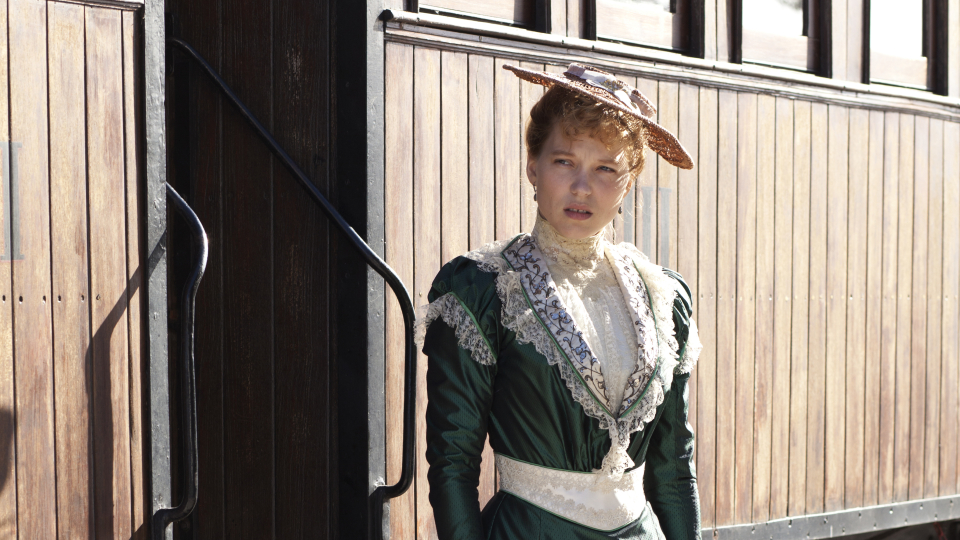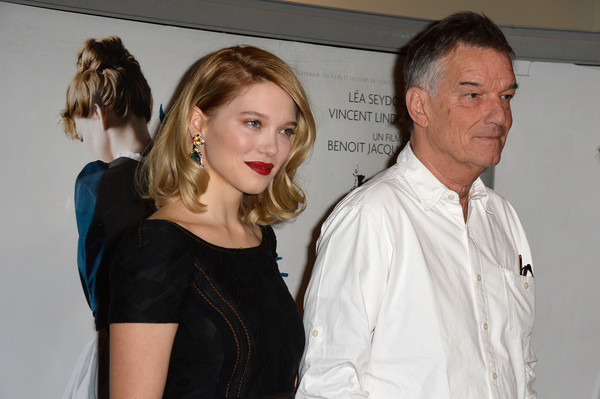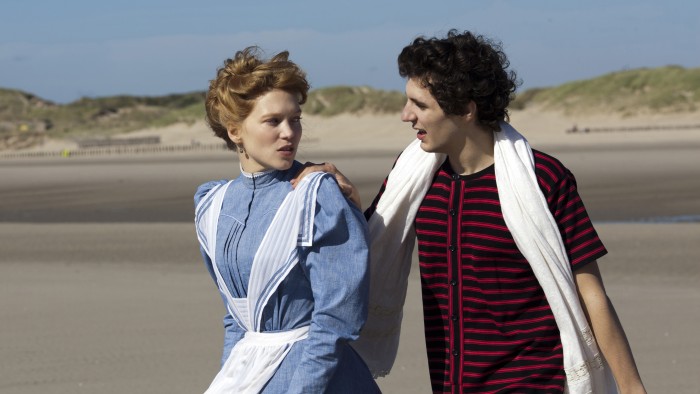Interview: 'Diary of a Chambermaid' Director Benoît Jacquot on Léa Seydoux and Literature
 Friday, June 10, 2016 at 7:00PM
Friday, June 10, 2016 at 7:00PM With the release of Diary of a Chambermaid, which reunites the director and star of the great Farewell My Queen, here's Jose with a new interview...

Octave Mirbeau’s 1900 novel Diary of a Chambermaid has been turned into a film no less than two times before, with filmmakers like Luis Buñuel and Jean Renoir taking on the task of bringing to life the tale of feisty, tragic chambermaid Célestine. Now, director Benoît Jacquot (Farewell My Queen) has re-teamed with Léa Seydoux to bring Célestine to life one more time. Jacquot’s adaptation injects Célestine with an even stronger sense of self awareness, she is often granted the power of breaking the narrative to address the audience, or herself even, and is given a sexual agency that forces audiences to see Mirbeau’s heroine under a different light. I had the opportunity to sit down with Mr. Jacquot to discuss his take on the novel, working with Léa Seydoux, and how literature influences his work.
Read the interview after the jump.
JOSE: Three Hearts was all about fate and how people have no control of what goes around them. In Diary of a Chambermaid, we see the opposite as Célestine does all she can to take control of her fate…
BENOÎT JACQUOT: Not really because at the end she thinks she’s escaped and has started something better, but she might as well be in the path to something worse. In a sense fate is still the winner here.
JOSE: That’s very sad.
BENOÎT JACQUOT: No, no, no.
JOSE: At least Célestine thinks she’s in control then, which is something the characters in Three Hearts never had.
BENOÎT JACQUOT: I think what’s common in both films and maybe some of my other films, is that the more you believe you know something, the less you know. It’s kind of the same thing for me when I’m doing the film, the more I think I know, the less I actually do.
 Léa Seydoux and Benoît Jacquot
Léa Seydoux and Benoît Jacquot
This is a very obvious question, given how wonderful Léa is onscreen, but why do you keep seeking her out to work with her?
Apart from the fact that she’s an actress who I really like, and who I like to film, I also really like the idea of first meeting an actor and then having an opportunity to meet them again later on. I’ve done this not only with Léa, but with Isabelle Huppert, Catherine Deneuve, I’m going to be working with Charlotte Gainsbourg again. I like this idea of having seen them in one film, revisiting later again.
Léa can look very modern, so I like that you use her in previous films because she brings an added layer of complexity, I don’t wanna say she looks smarter than the other characters, but she looks both out of place and also like she’s perfect where she is…
Voilá. You’re absolutely right, this is one of the characteristics that I really admire in her, which is she has this ability to make things very present and real. No matter what the time period in which these actions are taking place, I even think if I were to cast her in a role as a prehistoric character she would be able to bring this reality to it.
I wanna ask you about Célestine in contrast to two other characters in your films, both of which are service people, first up the character Léa played in Farewell, My Queen, and also Virginie Ledoyen's Valerie in A Single Girl, you’re given voices to these people who never get to talk.
I’m not a psychiatrist or a psychoanalyst, but I think there might be some kind of fantasy element into this idea of always showing women in this adverse conditions, and in conditions of servitude. Whether or not this is true I can’t say. But speaking on a rational level, one of the things that I’m very interested is showing how women very often in society are put in positions that are very hostile, restrictive and limiting. These are conditions in which they’ve had to exist and cope in the past and in the present, we don’t know what will happen in the future. One of the other things is the question of ambiguity, how do these women use these questions of hostility and use them to deal with men.
You’ve directed several operas, are you interested in making old fashioned musicals?
For myself I wouldn’t have had the idea really. But if somebody who is very powerful and very convincing asks me to do one perhaps I will.
I like your use of zooms in the film because they work as punctuations and reminded me of reading a book. In an interview a few years back you said when you worked with Marguerite Duras you realized she loathed cinema and thought filmmakers were just failed writers. Since you’ve done so many book adaptations and bring this sense of literary gravitas to films, are you trying to prove your mentor wrong?
I’ve made lots of films based on books and I read a lot. I’ve read a lot from the moment I learned how to do it, that was long before I met Marguerite Duras.
At one point you wanted to make The Counterfeiters and divide it in two parts, very much like a novel, and it made me wonder if you were interested in television which is nowadays often compared to literature.
It’s funny you ask this because I’ve been in discussions with Gaumont who approached me to consider the idea of doing a series of six one hour episodes based on Zola’s Nana. We’ve discussed it but I haven’t made any commitments.

Diary of a Chambermaid opens in theaters today.



Reader Comments (2)
Nice. I am obsessed with Léa Seydoux.
The French poster is beautiful.